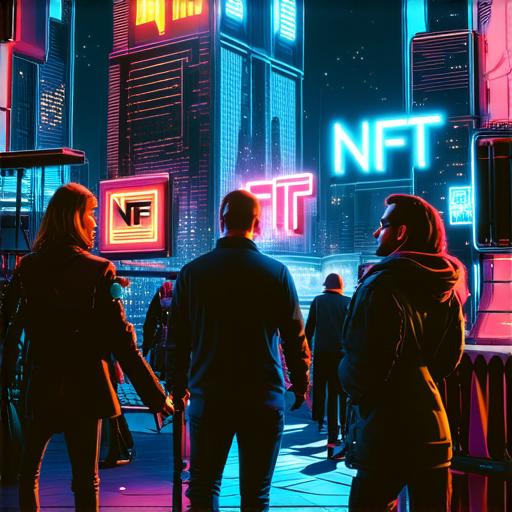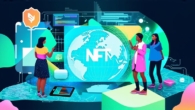
What does the future hold for NFTs
NFTs have taken the world by storm, with their unique ability to represent ownership of digital assets. In this comprehensive guide, we will explore the future of non-fungible tokens (NFTs) and how they are transforming various industries.
1. Introduction
NFTs have been around for a while, but their popularity has skyrocketed in recent years. They have found applications in art, gaming, music, and more. NFTs are digital assets that are unique and cannot be replaced or traded. They can represent ownership of items such as artwork, collectibles, domain names, and even real estate.
2. The Evolution of NFTs
NFTs have come a long way since their inception in 2014. They were initially used for digital art, but they quickly gained traction in other industries. In the gaming industry, for example, NFTs are being used to represent unique items such as weapons and characters. This allows players to own these items and trade them with other players.

In the music industry, NFTs are being used to represent ownership of unique music tracks and even concert tickets. This is a great way for artists to monetize their work and connect with their fans.
The beauty of NFTs lies in their ability to represent ownership of digital assets. This opens up new possibilities for artists, gamers, and collectors alike. As the technology continues to evolve, we can expect to see even more innovative use cases emerge.
3. The Future of NFTs
The future of NFTs looks bright. With their unique ability to represent ownership of digital assets, they are poised to transform various industries. Here are a few examples:
- Art and Collectibles: One of the most well-known use cases for NFTs is in the art and collectibles industry. NFTs allow artists to monetize their work by selling unique pieces that cannot be replicated. This has led to the creation of a new market for digital artwork, where artists can sell their creations directly to collectors.
- Real Estate: NFTs have also found applications in the real estate industry. They can be used to represent ownership of virtual real estate or even physical properties. For example, a developer could create an NFT that represents ownership of a piece of land in a virtual world. This opens up new possibilities for property development and monetization.
- Gaming: The gaming industry is another area where NFTs are transforming the way we play games. They allow players to own unique items such as weapons, characters, and collectibles. This creates a new economy within the game, where players can trade these items with each other.
- Music and Film: NFTs are also being used in the music and film industry. They allow artists and filmmakers to monetize their work by selling unique pieces that cannot be replicated. This has created a new market for digital music tracks, concert tickets, and even movie posters.
4. Challenges Facing NFTs
Despite their many benefits, NFTs also face several challenges. Here are a few:
- Regulation: The legal status of NFTs is still unclear in many countries. This can make it difficult for businesses to operate and sell NFTs. As the technology continues to evolve, we can expect to see more clarity on this issue.







